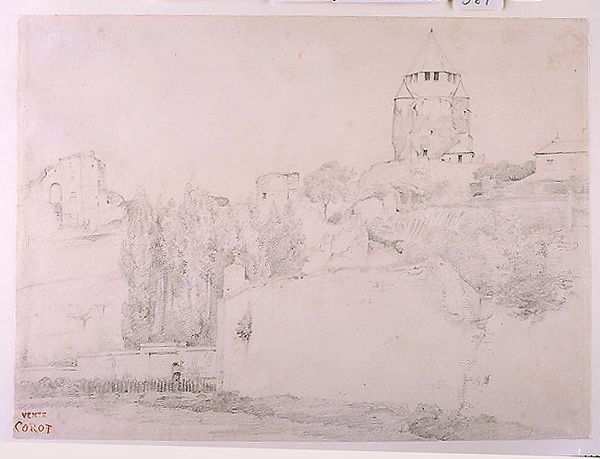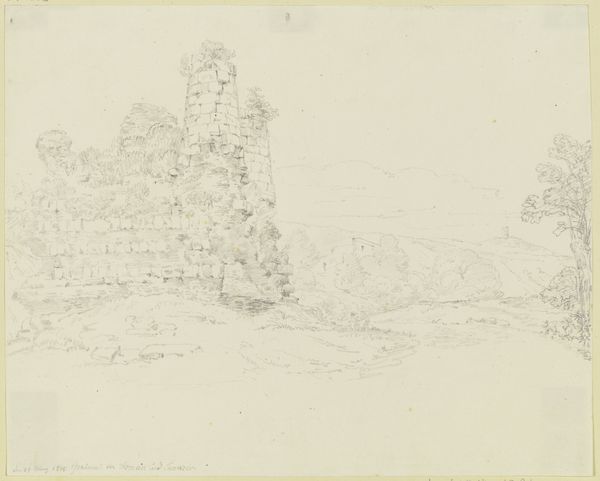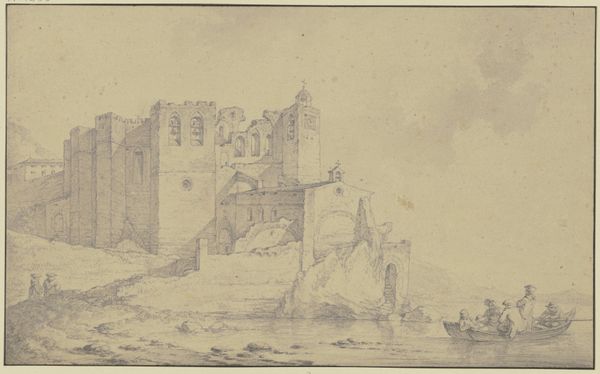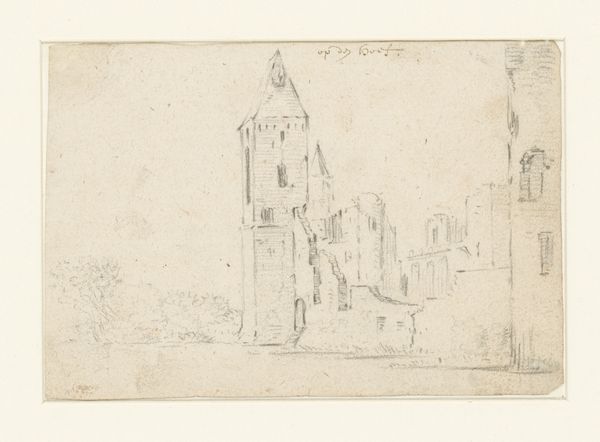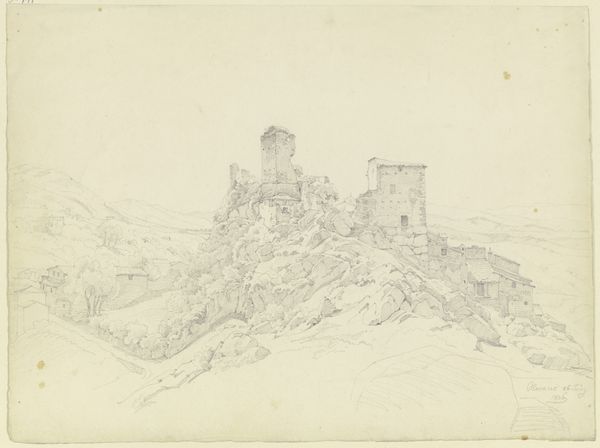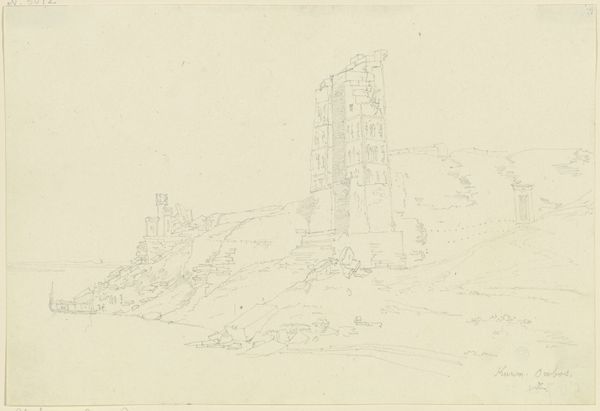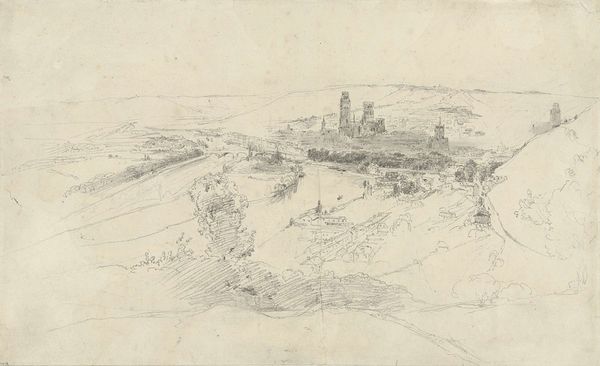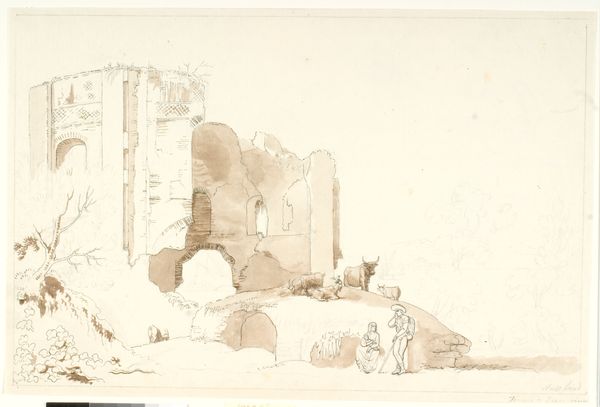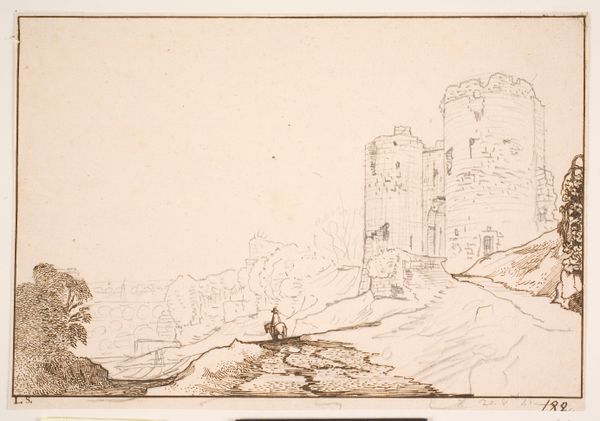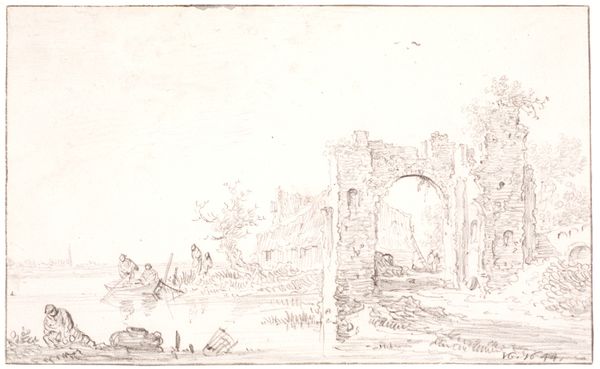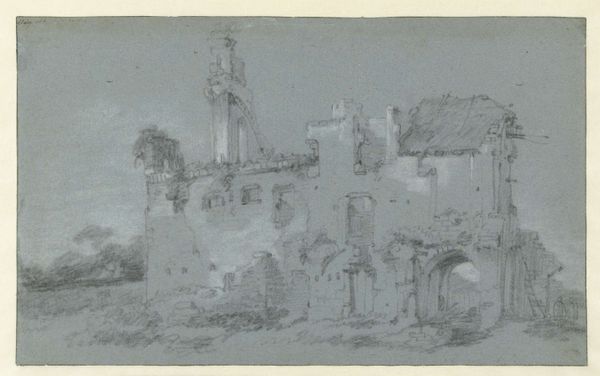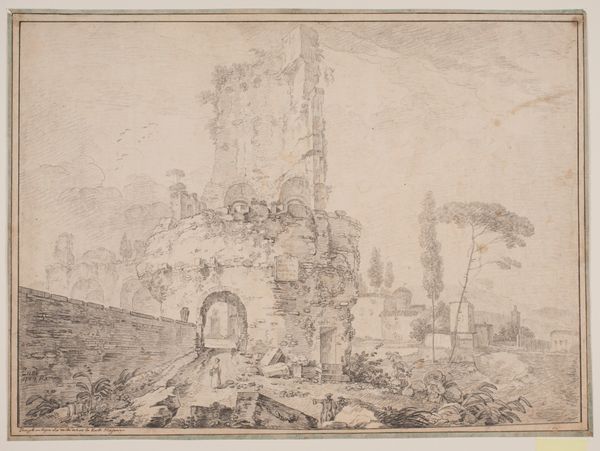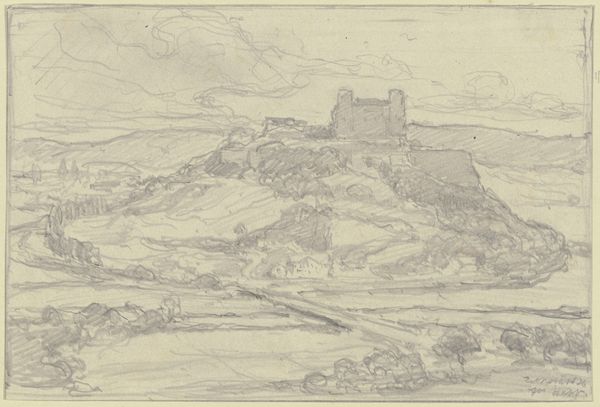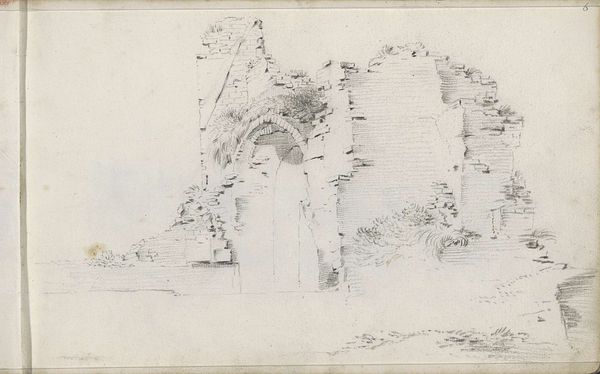
drawing, pencil, graphite
#
drawing
#
landscape
#
form
#
pencil
#
line
#
graphite
#
realism
Dimensions: 258 × 400 mm
Copyright: Public Domain
Editor: This is Guilliam Dujardin's "Buildings Amid Ruins in Roman Campagna," made with pencil and graphite. The softness of the lines and the stark subject matter—buildings in decay—create a really melancholic mood for me. What do you see in this piece? Curator: I see a dialogue between the past and present, a recurring theme in the imagery of the Roman Campagna. This drawing, likely made on site, speaks to a broader 18th and 19th-century fascination with the Grand Tour, where artists and wealthy Europeans explored classical ruins. But the real political point is the perception of those ruins. Were they picturesque remnants of a glorious past, or indictments of present decay? Editor: So, it's not just about the ruins themselves, but how they were seen and what they represented at the time? Curator: Exactly. The picturesque aesthetic often sanitized these ruins, framing them as beautiful, even sublime. However, some critics viewed such depictions as ignoring the social realities—poverty, disease—that coexisted alongside these celebrated remnants. This artwork, in its muted tones, invites us to consider whether it's simply admiring history, or subtly commenting on the political and social landscape of its time. Consider who owned, collected, and displayed works like this and why. Editor: I hadn't thought about the political context so explicitly. Seeing it as a visual commentary definitely adds another layer to understanding the artwork's meaning. Curator: It's a good reminder that even seemingly straightforward landscapes can be deeply embedded in cultural and political currents. I wonder what our contemporary audience makes of it today? Editor: That's a great question! It gives us something to think about long after we leave this piece.
Comments
No comments
Be the first to comment and join the conversation on the ultimate creative platform.
